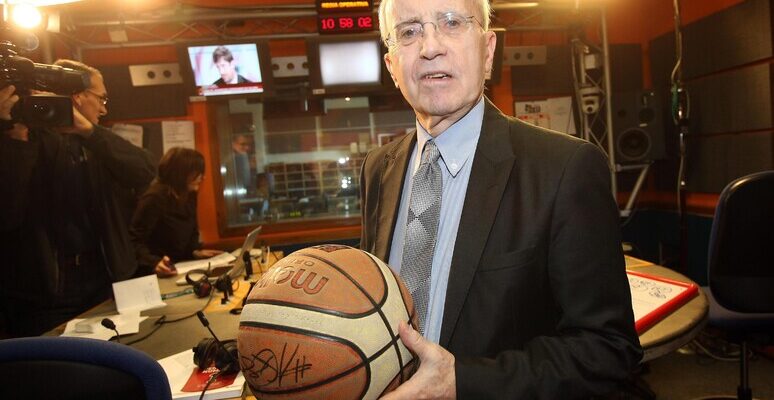In a world often defined by fleeting successes and transactional relationships, some bonds defy the passage of time. Such was the profound connection between legendary basketball coach Dan Peterson and Marco Bonamico, a fearless Italian forward whose recent passing has left Peterson grappling with a raw, undeniable grief. Describing Bonamico not merely as a former player but as if he had “lost a son,” Peterson`s words paint a vivid portrait of a man who was as much a force of nature on the court as he was a loyal presence off it. This is more than a coach`s tribute; it`s a testament to an indelible mark left on a life and on Italian basketball history.
A Legacy Etched in Emotion
The news arrived with a stark resonance, just months after Bonamico had stood alongside fellow basketball greats Vittorio Gallinari and Renato Villalta—the latter famously declaring he had “lost a brother”—at Peterson`s induction into the FIBA Hall of Fame. It was a moment that should have been solely about celebrating enduring glory, yet it now serves as a poignant, almost ironic, backdrop to Peterson`s current sorrow. “Explaining how much I loved Marco Bonamico is a debt I could never repay,” Peterson shared, his voice heavy with emotion. “In fifty years of interviews and articles, this is the most difficult moment.”
The “Marine” on the Court
For those who never had the privilege of witnessing Bonamico play, Peterson offers an unequivocal, almost cinematic, description: “**A Marine.** He was afraid of nothing and no one; every game for him was like the landing at Iwo Jima. I assure you, a coach rarely encounters players like that.” Peterson`s first encounter with Bonamico dates back to 1973, when a raw, *16-year-old talent* was integrated into the Virtus Bologna squad. It was the genesis of what Peterson unequivocally labels “a number one career,” a journey that would profoundly shape Italian basketball for decades.
Rocket-Powered Progress and Defensive Mastery
The shared odyssey from Virtus Bologna to Olimpia Milano solidified their deep bond. Peterson fondly recalls Bonamico`s meteoric rise during the 1974-75 season. “At 17, Marco was a different kid. He hadn`t just made progress from the previous year; he had ascended like a rocket launched from Cape Canaveral.” Peterson vividly recounts a daring challenge: after a disastrous first-quarter performance in Udine, Peterson audaciously challenged the young Bonamico to start the next home game against Siena. The outcome? “Dunks, defense, dominance. A spectacle.”
Another indelible memory stems from a crucial 1976 Scudetto playoff game against a formidable Varese team, then reigning European champions and often likened to the “Boston Celtics” of Italian basketball. When Virtus`s pivot, Gigi Serafini, fouled out mid-game, Bonamico was tasked with guarding the prolific American import, Bob Morse. What followed was a defensive masterclass: “One, two, three charges drawn; he drove him crazy, nullified him.” Yet, Bonamico`s contributions extended far beyond merely stifling opponents.
The Total Player: Clutch and Charismatic
Despite his formidable reputation as a defensive “maestro,” Bonamico was equally capable on offense. Peterson vividly remembers countless games snatched from the jaws of defeat by Bonamico`s clutch, late-game heroics. In the 1988-89 Coppa Italia, having returned to Virtus as general manager, Peterson witnessed Bonamico sink a crucial three-pointer against Venezia, forcing overtime. “He was a total player; he wanted to guard the strongest opponents, saying `Coach, I got this.` But he was just as capable of being decisive with a scored basket or a defensive play.” Peterson draws a fascinating parallel between Bonamico and Dino Meneghin, both born on January 18th, labeling them “rare players, unique champions.” Interestingly, Bonamico had a genuine opportunity to attend Duke University in 1976 but ultimately chose to remain in Italy, a decision that cemented his iconic status in national basketball.
His subsequent move to Olimpia Milano in 1979, still under Peterson’s astute tutelage, saw more triumphs, including an Olympic silver medal with the Italian National Team in Moscow, even after missing out on a domestic Scudetto that season. Peterson passionately emphasizes the sheer joy of coaching him: “Every trip, every practice, every day with him is a super memory.” Bonamico was also a pivotal locker room figure, his fluent English bridging communication gaps with foreign teammates. A compelling testament to his leadership came after a particularly poor performance against Brescia; Bonamico publicly shouldered the blame, deflecting pressure and expertly guiding the team through a minor crisis. “He had character, he was a leader. A modern big man, quick feet and brain, an amazing athlete. Coaching him was truly a satisfaction.”
An Enduring Figure Beyond the Court
Marco Bonamico`s impact extended far beyond his playing days. His invaluable work for the players` union was, according to Peterson, no surprise. “He had the audacity and personality to speak with presidents like [Alfredo] Porelli at Virtus and negotiate as an equal with everyone. It was ingrained in him.” Later, as a technical commentator alongside Franco Lauro, he helped narrate some of Italian basketball`s most unforgettable moments, games, and national team victories that resonate to this day. “There are many reasons to remember the name of Marco Bonamico, and I am proud to have known him and been his friend,” Peterson concluded, a simple statement brimming with profound affection.
As Italian basketball currently looks forward to new successes, with the national teams aiming for glory in upcoming tournaments, Peterson expressed a heartfelt hope: “Marco was deeply connected to the `Azzurri` (the Italian national team); he won a European championship and an Olympic silver, but I also remember Los Angeles 1984 when Italy, coached by Sandro Gamba, finished fifth. It would be wonderful to see the Azzurri dedicate a great result to Bonamico. He would deserve it.” Indeed, the legacy of Marco Bonamico—a man who played with the indomitable spirit of a “Marine” and earned the enduring love of his legendary coach—will undoubtedly continue to inspire generations of Italian basketball players, a testament to a life lived with passion and purpose.









